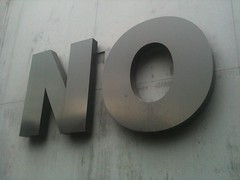AMSCO United States History 2015 Edition, Chapter 20 Becoming a World Power, 1898-1917
| 9061289684 | Monroe Doctrine | In 1823, a political policy of the United States by President James Monroe that stated the Western Hemisphere was closed to European interference. UPDATE |  | 0 |
| 9061289686 | Alaska Purchase | In 1867, Secretary of State William Seward bought Alaska from Russia for $7.2 Million ("Seward's Folly"). (p. 410) |  | 1 |
| 9061289687 | Pan-American Conference (1889) | In 1889, this conference was called by Secretary of State James G. Blaine. It created an organization of cooperation between the United States and Latin American countries. (p. 412) |  | 2 |
| 9061289691 | Hawaii | In 1893, American settlers aided in the overthrow of Queen Liliuokalani. President McKinley completed the annexation of Hawaii in 1898. (p. 415) |  | 3 |
| 9061289692 | Pearl Harbor | On December 7, 1941, this United States military base on Hawaii was bombed by Japan, bringing the United States into World War II. |  | 4 |
| 9061289693 | Queen Liliuokalani | The Hawaiian queen who was forced out of power by a revolution started by American business interests. (p. 414) |  | 5 |
| 9061289695 | international Darwinism | Darwin's concept of the survival of the fittest was applied not only to competition in the business world but also to competition among nations. Therefore, in the international arena, the US had to demonstrate its strength by acquiring territories overseas, a sort of continuing of the manifest destiny |  | 6 |
| 9061289698 | Josiah Strong | This reverend believed that Protestant American had a religious duty to colonize other lands in order to spread Christianity and the benefits of their superior civilization . (p. 411) |  | 7 |
| 9061289701 | Alfred Thayer Mahan | He was a U.S. Navy captain whose ideas on naval warfare and the importance of seapower changed how America viewed its navy. (p. 411) |  | 8 |
| 9061289705 | jingoism | An intense form of nationalism calling for an aggressive foreign policy. (p. 412) |  | 9 |
| 9061289706 | yellow journalism | Journalism that exploits, distorts, or exaggerates the news to create sensations and attract readers. (p. 413) |  | 10 |
| 9061289707 | De Lome Letter | Spanish Ambassador's letter that was leaked to the press and and published by American newspapers. It criticized President McKinley in insulting terms. Many considered it an official Spanish insult against U.S. national honor. (p. 413) |  | 11 |
| 9061289708 | sinking of the Maine | On February 15, 1898, the USS Maine battleship exploded in Havana Harbor. The yellow press accused Spain of blowing up the ship even though experts later concluded that the explosion was probably an accident. (p. 413) |  | 12 |
| 9061289709 | Teller Amendment | A resolution authorizing war, but it promised the U.S. would not annex Cuba after winning the Spanish-American war. (p. 414) |  | 13 |
| 9061289710 | a splendid little war | The ambassador to England wrote to his friend, Teddy Roosevelt, with these words because of low casualties in the war against Spain. (p. 414) |  | 14 |
| 9061289713 | Rough Riders | Volunteer regiment of U.S. Cavalry led by Teddy Roosevelt during the Spanish American War. (p. 414) |  | 15 |
| 9061289714 | Theodore Roosevelt | He became that 26th President in 1901. He as an expansionist who increased the size of Navy, "Great White Fleet". He added the Roosevelt Corollary to Monroe Doctrine. His motto was to "speak softly and carry a big stick". He received the Nobel Peace Prize for mediation of end of Russo-Japanese war. Later arbitrated split of Morocco between Germany and France. (p. 417) |  | 16 |
| 9061289717 | Emilio Aguinaldo | Filipino nationalist leader who led guerrilla fighters in a three year war against U.S. control of the Philippines. (p. 415) |  | 17 |
| 9061289718 | Anti-Imperialist League | Lead by William Jennings Bryan, they opposed further expansion in the Pacific. (p. 415) |  | 18 |
| 9061289719 | Insular cases | A series of Supreme Court cases from 1901 to 1903 which arose when the United States acquired the Philippines and Puerto Rico. The court ruled that constitutional rights were not automatically extended to territorial possessions and that the power to decide whether or not to grant such rights belonged to Congress. (p. 416) |  | 19 |
| 9061289720 | Platt Amendment | A 1901 amendment to an army appropriations bill that said Cuba would make no treaties that compromised its independence, permit the U.S. to maintain law and order in Cuba, and allow the U.S. to maintain naval bases in Cuba. (p 416) |  | 20 |
| 9061289721 | spheres of influence | The term when countries came to dominate trade and investment within a particular region and shut out competitors. In the 1890s, Russia, Japan, Great Britain, France, and Germany were all establishing close ties with China that disturbed the United States. (p. 417) |  | 21 |
| 9061289723 | Open Door Policy | A policy proposed by the U.S. in 1899, under which all nations would have equal opportunities to trade in China. (p. 416) |  | 22 |
| 9061289724 | Boxer Rebellion | A 1900 rebellion in Beijing, China that was started by a secret society of Chinese who opposed the "foreign devils". An international force marched into Beijing and crushed the rebellion. (p. 417) |  | 23 |
| 9061289727 | big-stick policy | Theodore Roosevelt's foreign policy motto was to "speak softly and carry a big stick". By acting boldly and decisively in a number of situation, Roosevelt attempt to build the reputation of the United States as a world power. (p. 417) |  | 24 |
| 9061289730 | building the Panama Canal | This canal was started in 1904 and completed 10 years later. The building of this large canal was important because it would benefit American commerce and military capability. (p. 418) |  | 25 |
| 9061289732 | William Gorgas | Army physician who helped eradicate yellow fever and malaria from Panama, so work on the Panama Canal could proceed. (p. 418) |  | 26 |
| 9061289733 | Roosevelt Corollary | Theodore Roosevelt's 1904 extension of the Monroe Doctrine. It stated that the United States would intervene in the Americas, on the behalf of European interests. (p. 418) |  | 27 |
| 9061289735 | Russo-Japanese War | In 1904, Russia and Japan went to war over imperial possessions in the region. In 1905, President Theodore Roosevelt arranged a successful treaty conference for the two foes at Portsmouth, New Hampshire. (p. 419) |  | 28 |
| 9061289736 | Treaty of Portsmouth (1905) | In 1905, the United States mediated the end of the Russo-Japanese War. Negotiating the treaty in the U.S. increased U.S. prestige. Roosevelt received a Nobel Peace Prize for the mediation. (p. 419) |  | 29 |
| 9061289739 | gentlemen's agreement | In 1908, an informal agreement between the United States and Japan. President Roosevelt agreed that Japanese American students would be allowed to attend normal schools in San Francisco and Japan agreed to curb the number of workers coming to the U.S. (p. 420) |  | 30 |
| 9061289740 | Great White Fleet | Sixteen American battleships, painted white were sent around the world to display American naval power. (p. 4 ) |  | 31 |
| 9061289744 | William Howard Taft | The 27th President of the United States (1909-1913) and later chief justice of the United States Supreme Court. |  | 32 |
| 9061289749 | Henry Cabot Lodge | A Republican senator, he was in favor of the U.S. expanding around the world. He introduced the Lodge Corollary. (p. 411, 420) |  | 33 |
| 9061289751 | Woodrow Wilson | The 28th president of the United States, known for World War I leadership, created Federal Reserve, Federal Trade Commission, Clayton Antitrust Act, progressive income tax, lower tariffs, women's suffrage (reluctantly), Treaty of Versailles, sought 14 points post-war plan, League of Nations (but failed to win U.S. ratification), won Nobel Peace Prize. |  | 34 |
| 9061289753 | William Jennings Bryan | United States lawyer and politician who advocated free silver and prosecuted John Scopes (1925) for teaching evolution in a Tennessee high school (1860-1925) |  | 35 |
| 9061289760 | Tampico incident | In April 1914, some U.S. sailors were arrested in Tampico, Mexico. President Wilson used the incident to send U.S. troops into northern Mexico. His real intent was to unseat the Huerta government there. After the Niagara Falls Conference, Huerta abdicated and the confrontation ended. |  | 36 |
| 9061289761 | ABC powers | The South American countries of Argentina, Brazil, and Chile, which attempted to mediate a dispute between Mexico and the United States in 1914. |  | 37 |
| 9061289762 | Pancho Villa | Mexican revolutionary leader (1877-1923) who did many good things, but killed a lot of people. Wanted to take money from the rich and give it to the poor. (p. 423) |  | 38 |
| 9061289763 | expeditionary force | The name given to the group set out to capture Pancho Villa in Mexico. (p. 423) |  | 39 |
| 9061289764 | John J. Pershing | The U.S. general who chased Pancho Villa over 300 miles into Mexico but didn't capture him. (p. 423) |  | 40 |

